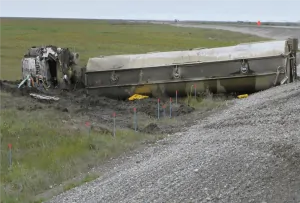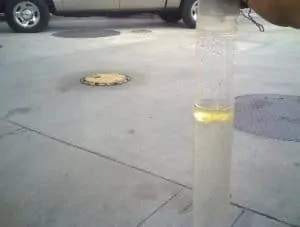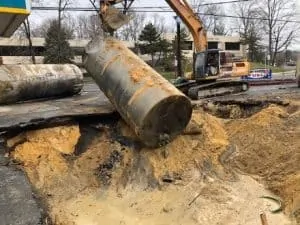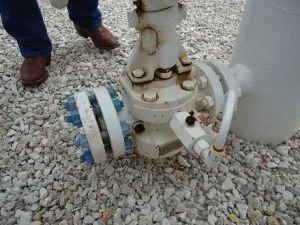

…it’s like balancing a chemical equation to get the right answer.
SCS Engineers works with insurance firms, and we understand the insurance industry’s involvement in environmental and engineering projects. Our professional staff, located according to their knowledge of regional and local geography, regulatory policies, and industrial or scientific specialty, are available nationwide. SCS professionals are sought after as technical experts, admitted as expert witnesses, and support legal counsel in a variety of environmental and regulatory litigation matters.
Rising to meet the needs of insurance companies, SCS has the resources and professionals to assist commercial, industrial and municipal clients with a wide range of environmental and engineering issues and scenarios that can occur in the course of business operations. As a result, SCS also assists clients who have the need for, and exposure to, environmental insurance policies, assisting with coverage-related matters and claims. For our engineering and environmental clients, SCS has the depth of insurance experience and technical expertise to provide the guidance needed to help with environmental claims and can act as a liaison to facilitate a more straightforward claim process.
Environmental insurance can cover regulatory agency-required cleanups, bodily injury, property damage, and associated legal expenses that may result from a contamination event. Contamination and the mitigation process are expensive, often more expensive than prevention. Contamination is usually accidental, such as a spill, but may transpire over time or be a pre-existing condition. Environmental insurance protects companies by covering the expense of assessing contamination and performing remediation, thus restoring the environment and helping to keep the business operating safely. Our experience includes a wide range of environmental claim scenarios (i.e. gasoline/service stations, transportation accidents, the oil and gas industry, manufacturing and industrial facilities, asbestos, mold), which dovetails extremely well with SCS’s own numerous business sectors.
The 5 W’s of Environmental Insurance
SCS Engineers Environmental Insurance Services and Case/Claim Studies
An environmental insurance claim is simply the response and mitigation of an environmental issue or event paid for by an environmental insurance policy. Similar to an auto or home insurance claim, a company or individual purchases this type of policy to protect them in case a matter arises about their facility, operations, or property resulting in a regulatory requirement for investigation and remediation; forming the basis for a submitted claim. Such responses cost money, often a lot of it, and the environmental insurance policy is there to pay for the costs associated with the investigation and remediation of any environmental issues.
Any environmental issue can result in an environmental claim, so it is essential that you have the right policy in place to cover a particular claim. Typical issues or events include:

Insurance clients submit notice to the insurance company that an environmental issue occurred or was discovered which requires investigation and corrective action. The onus is on the client to provide sufficient information to substantiate a claim submittal. The insurance company reviews this information in their evaluation of coverage for the issue under the policy.
When a new claim is submitted to the insurance company, the client must provide information that substantiates that an issue exists and that further investigation and corrective action is required. Often their substantiation consists of the initial technical details about the nature and extent of the environmental problem. Claims analysts generally have a strong legal background but may lack technical environmental expertise; this is when insurance support services become valuable. The following paragraphs summarize each step in the process and how SCS insurance support assists claims analysts through the process.
Once the insurance company receives a notice of claim, they determine whether the client’s policy provides coverage for the specific issue or event that constitutes the claim. A claims analyst evaluates the specifics of the claim to determine if the associated details and circumstances fall within the specifics of the client’s policy. If so, coverage is usually accepted. If not, coverage is generally denied.
SCS’s role is to provide an evaluation of the technical aspects of the claim so that the claims analyst can take the distilled facts and compare them against the specifics of the policy; often called a “Source and Timing” evaluation. Take, for example, an underground storage tank (UST) release at a gasoline station. In this example, free product (gasoline) is observed in an on-site monitoring well where no free product has previously or recently been identified.

The station owner or their environmental consultant reports the apparent new release to the regulator, and a confirmed discharge is recorded. The property owner than notifies the insurance company of a gasoline release to the environment.
As part of the “Source and Timing” evaluation, SCS’s insurance support reviews tank system leak detection and inventory records, tank system tightness testing records, previous groundwater monitoring data, reports of any earlier releases at the facility, and any other information or data about the facility and the subject release. The goal is to identify:
If enough information is available to make these determinations, then the claims analyst compares the SCS report to the coverage specifics and exclusions included in the policy; determining if the event is covered. The claims analyst will usually try to make a coverage determination on their own if the facts are relatively straightforward, but often that is not the case, and the assistance of insurance support services is necessary.
This process can be straightforward, such as in the case of a tanker truck rollover or industrial facility chemical spill, but is often more complicated when insufficient information is available to make a source and timing determination. In the latter case, the claims analyst issues a Reservation of Rights letter, stating that the insurer is not accepting or denying coverage at this time as the circumstances of the claim are still under evaluation and investigation.
Claims can be denied if the incident occurs before or after the policy period; if the source or type of incident are not included or are specifically excluded under the policy; or if the incident occurred because of the client’s negligence. If coverage is denied no further actions are generally necessary on the part of the insurance company. Whether a claim is accepted or denied is often more complicated than what we’ve discussed here.

The claim is accepted; undoubtedly good news for the client. What happens now is that the claim becomes “Active,” requiring among other things for the claims analyst to set reserves. A reserve is an estimate of what the claim is going to cost the insurance company. Your insurance support consultant can provide a rough approximation of the estimated costs to achieve regulatory closure, which includes all expenses incurred from investigation through remediation, post-remediation monitoring and reporting.
Early in the life of a claim, these are preliminary estimates that are refined as a project progresses, often requiring the claims analyst to adjust their reserves; important to the insurance company as future reserves impact financial forecasts. Insurance support services will develop the cost-to-closure estimate based on all available information and data, as well as their professional experience on similar projects. The insurer wants the most experienced environmental consultants and engineers on the case because their estimates are more likely to be on target and identify potential regulatory issues or risks.
From the insurer’s standpoint, the primary goal is to maintain a high level of responsiveness to their clients and process requests for reimbursement against the claim. The role of your insurance support team can continue by managing quality control and evaluation of site-specific activities; ensuring that the investigation and cleanup are reasonable and appropriate given the environmental conditions at the site, all applicable regulatory requirements, and costs consistent with industry standards for recovery. The client and their environmental consultant are required to provide the insurer and the insurance support consultant documentation of the work as follows:
Over the life of a claim, insurance support may correspond with the project consultant on behalf of the insurer, conduct site visits, and be asked to participate in meetings, conference calls, and mediations. The overall goal of your insurance support consultant is to assist claims analysts in closing a claim in the most time-efficient, cost-effective manner possible within all regulatory rules and guidelines.
Once an active claim−environmental project has achieved regulatory closure, the claims analyst begins the administrative process of closing the claim. From SCS’s insurance support standpoint, all that remains is to obtain the appropriate documentation from the regulator confirming that the subject project is approved for closure and that no further actions are required.

There are other circumstances which may result in closing a claim, such as exceeding the maximum total cost that can be paid out by the policy, non-compliance with policy requirements, or new information coming to light which results in a change in coverage position by the insurer. In some cases, such as when there is a change in coverage position or the cause of the issue can be attributed to a third party equipment failure, the insurer may seek to recover costs expended from the client and third-party policies. That process, called subrogation, may require the expertise of your insurance support specialist and at times their testimony as an expert witness.
There are several ways that SCS helps our insurance clients and other clients. The involvement of insurance companies is becoming more pervasive throughout environmental consulting and engineering in all business sectors. The combination of SCS’s industry expertise, contacts associated with our insurance support services, and our Federal, State, and local level regulatory expertise brings more knowledge and efficiency to each project. SCS offers a wide range of engineering and environmental services, a national presence, and a positive established industry reputation.
Our clients appreciate being able to draw upon our insurance-related expertise to assist them with their submittals, interpreting insurance requirements, and liaising with insurance companies as part of our core capabilities.

Mr. Michael Schmidt is an accomplished industry leader with nearly 30 years of progressively responsible experience in the environmental consulting and environmental insurance industries. He has specific expertise focusing on the evaluation of environmental risks and liabilities associated with insurance claims and underwriting, site investigation and remediation, due diligence, and project management.
Feel free to use our website to share our blogs, whitepapers, case studies, events, and news. SCS respects your privacy.